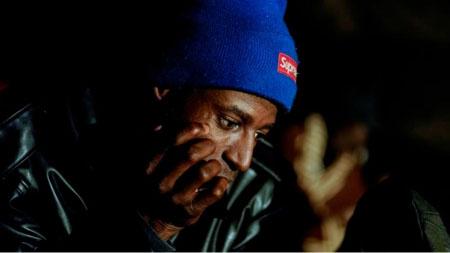
Rome,
Italy - Before arriving in Italy, Koffi (not his real name), a 29-year-old from
Ivory Coast, did not know much about lasagna.
Training
as a chef with the social cooperative Aiperon introduced him to a brand new
world.
“I
love cooking Italian better than Ivorian food,” Koffi told Al Jazeera.
A
humanitarian residence permit holder, Koffi came to Italy after his family at
home was threatened. He was later abducted in a Libyan detention centre and
then, finally, made a perilous journey across the Mediterranean Sea.
Since
2016, he has lived within the public-funded reception system for refugees in
the southern city of Caserta, north of Naples. He has been provided with an
apartment and studied at a local school.
“We
received a lot - an education and a regular document to stay here. Training
gave me a better hope for the future,” he said.
However,
the enactment of an anti-migrant decree could soon tear all his dreams apart.
Salvini
decree
In
October 2018, former Italian interior minister and far-right League party
leader, Matteo Salvini, drafted the so-called “migration and security decree”.
The
document cracked down on asylum rights by abolishing the “humanitarian
protection” - a residence permit issued for those who do not qualify for
refugee status or subsidiary protection but were deemed as vulnerable.
The
law also excluded people holding international protection and unaccompanied
foreign minors (SIPROIMI), who were entitled to receive further aid and
assistance from the official protection system.
This
means losing their houses and possibly missing out on language classes and
traineeships.
On
December 19, the Italian Ministry of the Interior issued an official
communication compelling these permit holders to leave the reception system by
the end of the year.
A
further letter sought to remove asylum seekers from integration schemes and
transfer them into other reception centres.
“We
had no communication whatsoever before the 19,” Maria Rita Cardillo, the legal
officer of the programme in Caserta, told Al Jazeera.
“All
the projects had previously received an exceptional extension until June, so we
expected a prolongation for the beneficiaries too,” she said. “Moving out those
with of a humanitarian permit in days during the Christmas holidays and with no
foreseen alternative is absurd.”
Caserta
hosts eight holders. Half of them are disabled and have stayed inside the
reception system for between six months and two years.
“Some
would not be able to live outside,” said Cardillo, concerns shared by other
social workers.
Wrong
interpretation
“People
could end up in the streets in the middle of the winter,” said Filippo
Miraglia, who works with ARCI, a network of committees and cooperatives
involved in cultural and social activities, hosting roughly 3,000 refugees in
80 aid and reception schemes.
Miraglia
first sounded the alarm over the consequences of the ministry’s decision, which
he says is based on a mistaken interpretation of the security decree.
“According
to the law, humanitarian protection holders could remain inside the system
until the end of their programme,” Miraglia said. “And the town halls will
renew most of these for another three years.”
After
the official communication went public, the interior ministry on December 21 attempted
to clarify its instructions.
“None
of the 1,428 holders of a humanitarian residence permit who are currently
enrolled in SIPROIMI will end up on the streets,” it said in a statement.
Local
town halls will now decide whether to keep the affected people in the reception
programme.
However,
both Cardillo and Miraglia remain sceptical of this solution, fearing that
bureaucracy will slow down the whole process.
“Even
if there is a new reception programme for humanitarian protection holders in
seven months, what should we do in the meantime?” Cardillo said.
Losing
hope
After
this August’s political crisis of the coalition government, between Salvini’s
far-right League party and the populist Five Star Movement, followed by the
appointment of technician Luciana Lamorgese as the new interior minister,
social and humanitarian workers had hoped for radical change in Italy’s
migration policy.
However,
they are slowly losing hope.
“The
minister of interior wants to avoid an open conflict with the Five Star Movement,”
Miraglia said. “So they are not seeking to overturn Salvini’s policies.”
Tired
of waiting, the coalition of civic society organisation, Table for Asylum, has
called for a demonstration in front of Italian prefectures on December 27.
In
the meantime, Koffi and his fellow humanitarian holders and asylum seekers can
do little more than wait. “What should I do now?” he said, as he reflected on
his future.
Source
Aljazeera
Read Other Articles In Article (Archive)
NDEA OC, station officer trial progresses
Mar 2, 2011, 11:45 AM


